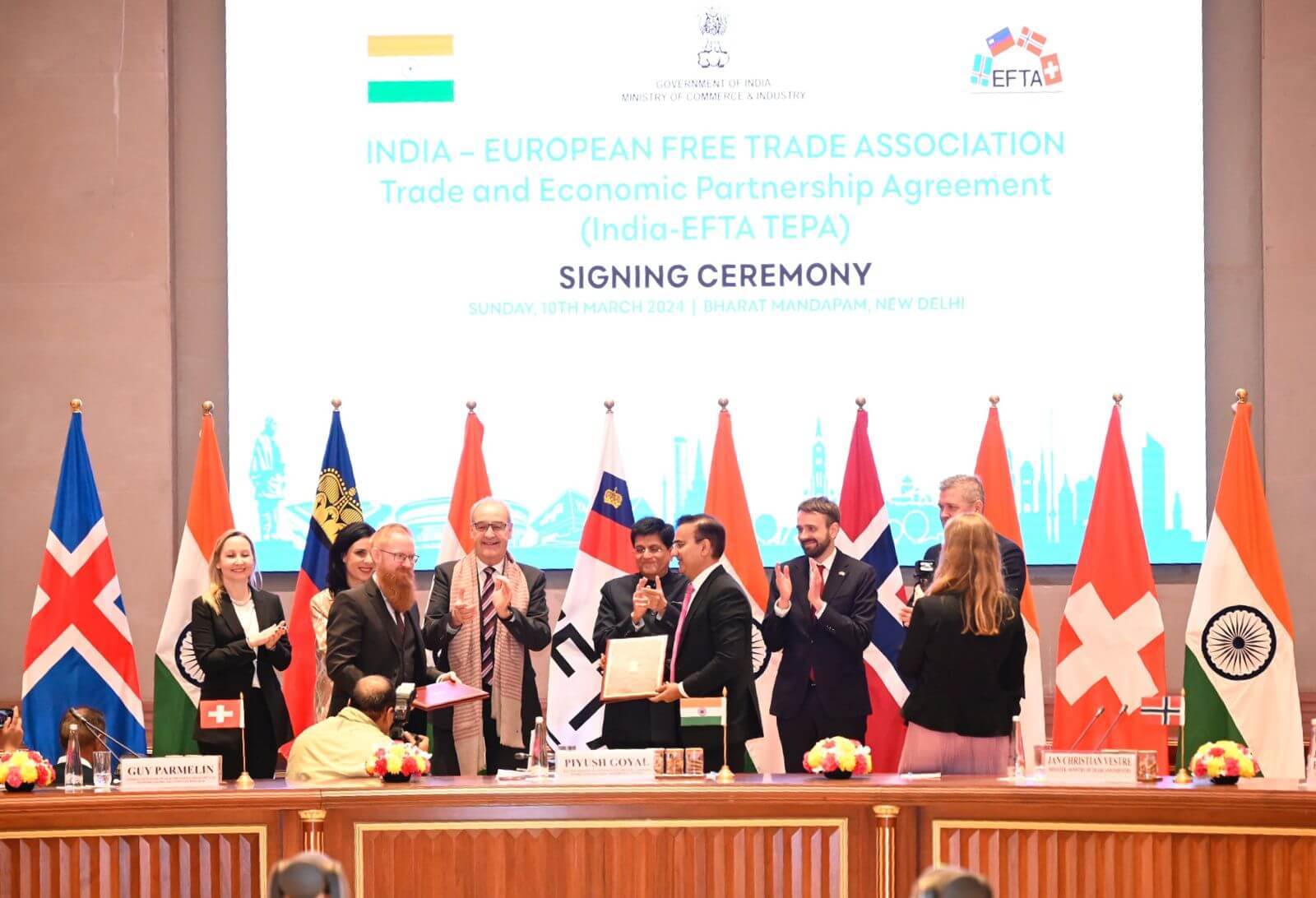On Sunday, India signed a Trade and Economic Partnership Agreement (TEPA) with the European Free Trade Association (EFTA). The agreement, which includes a $100 billion investment pledge, was signed after 16 years and 21 rounds of talks.
Overview
The cabinet approved the agreement signed with the EFTA, an intergovernmental organisation established in 1960 to promote free trade and economic integration, which includes Switzerland, Iceland, Norway, and Liechtenstein. The deal aims to boost trade and investments between the two regions.
Stronger Ties Inked!
— Piyush Goyal (मोदी का परिवार) (@PiyushGoyal) March 10, 2024
Delighted to sign the India-EFTA Trade & Economic Partnership Agreement, yet another pact of progress for our nation.
This watershed agreement, realised under the guidance & leadership of PM @NarendraModi ji, marks the dawn of a new era of prosperity and… pic.twitter.com/4h6FKoVAIO
“For the first time in the history of FTAs, a binding commitment of $100 bn investment and 1 million direct jobs in the next 15 years has been given,” Indian Minister of Commerce and Industry Piyush Goyal said. Similarly, the government statement mentioned that, in the deal, a legal promise to support target-oriented investment and job creation is being made for the first time in the history of free trade agreements.
Goyal claimed that the agreement would boost “Make in India” and open a window for Indian exporters to access the European and global markets. After being ratified by the EFTA states in accordance with their respective parliamentary procedures, which is anticipated to happen by the end of the year, the agreement will become operative.
14 Chapter Agreement
The fourteen-chapter agreement covers a wide range of topics, including investment promotion, market access for services, intellectual property rights, trade and sustainable development, rules of origin, trade facilitation, trade remedies, sanitary and phytosanitary measures, and technical trade barriers.
The purpose of TEPA is to promote domestic manufacturing in industries such as banking and financial services, insurance, manufacturing, machinery, pharmaceuticals, chemicals, food processing, transportation and logistics, and infrastructure and connectivity. It also aims to encourage technical collaboration and the export of Indian services in business and IT, personal, cultural, athletic, and recreational activities, audio-visual services, and other forms of education.
Additionally, it has provisions for Mutual Recognition Agreements in Professional Services such as nursing, chartered accountants, and architects, among others. Moreover, it will provide an opportunity for India to integrate itself into EU markets.
Landmark Agreement
Indian PM Narendra Modi hailed the signing of the agreement and said that the “landmark pact” will boost economic progress and create opportunities for our youth.
The agreement was signed in Delhi by Guy Parmelin, the head of the Swiss Federal Department of Economic Affairs, Education, and Research, Bjarni Benediktsson, the Minister of Foreign Affairs of Iceland, Dominique Hasler, the Minister of Foreign Affairs of Liechtenstein, and Jan Christian Vestre, the Minister of Trade and Industry of Norway.

